Story Ideas - 2015
Story Ideas
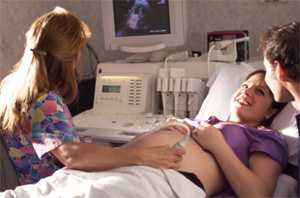
Preventing Birth Defects
About one in every 33 babies is born with a birth defect in the United States each year. Birth defects are serious conditions that can affect almost any part of the body, such as the heart, brain, spine, or foot. A birth defect can be found before birth, at birth, or any time after birth. Most birth defects are found within the first year of life. Not all birth defects can be prevented. But, there are things that a woman can do before and during pregnancy to increase her chances of having a healthy baby.
If you are pregnant or planning to get pregnant, see your healthcare provider. Seeing your healthcare provider before you get pregnant can help you have a healthy pregnancy. Prenatal care, which is health care received during pregnancy, can help find some problems early in pregnancy so they can be monitored or treated before birth. There are other steps a woman can take to increase her chances of having a healthy baby:
- Get 400 micrograms (mcg) of folic acid every day, starting at least one month before getting pregnant.
- Don’t drink alcohol, smoke or use “street” drugs.
- Talk to a healthcare provider about taking any medications, including prescription and over-the-counter medications and dietary and herbal supplements. Also talk to a doctor before stopping any medications that are needed to treat health conditions.
- Learn how to prevent infections during pregnancy.
- If possible, be sure any medical conditions are under control, before becoming pregnant. Some conditions that increase the risk for birth defects include diabetes and obesity.
For more information, see related links:
- Folic Acid
- Preconception Health and Healthcare
- Diagnosing Birth Defects
- More Tips to Prevent Birth Defects
- Causes and Risk Factors
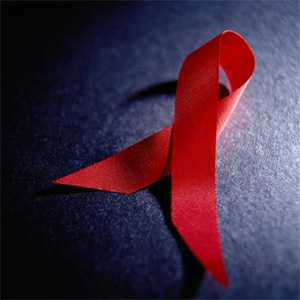
Living with HIV
Today, an estimated 1.2 million people are living with HIV in the United States. Thanks to better treatments, people with HIV are now living longer—and with a better quality of life—than ever before. If you are living with HIV, it's important to make choices that keep you healthy and protect others.
It's very important for you to take your HIV medicines exactly as directed. Not taking medications correctly may lower the level of immune system defenders called CD4 cells and cause the level of virus in your blood (viral load) to go up. The medicines then become less effective when taken.
Be sure that your partner or partners know that you have HIV. Then they will know it's important to use condoms for all sexual activity and to be tested often for HIV. Protect your partners by keeping yourself healthy. Take all of your medicines and get tested and treated for other sexually transmitted diseases.
You can avoid spreading the virus to others by making sure they do not come into contact with your body fluids.
- Abstinence (not having sex) is the best way to prevent the spread of HIV infection and some other STDs. If abstinence is not possible, use condoms whenever you have sex—vaginal, anal, or oral.
- Do not share drug equipment. Blood can get into needles, syringes, and other equipment. If the blood has HIV in it, the infection can be spread to the next user.
- Do not share items that may have your blood on them, such as razors or toothbrushes.
For more information, see related links:

American Heart Month
With Valentine’s Day on the horizon, many Americans are planning something special for loved ones – often involving heart-shaped cards, candy and other gifts. But February is also American Heart Month, a reminder of how important it is to focus on your own heart. Learn about your risks for heart disease and stroke and stay "heart healthy" for yourself and your loved ones.
Cardiovascular disease (CVD), including heart disease and stroke, is the number 1 killer of women and men in the United States. It accounts for one-third of all U.S. deaths and contributes an estimated $320 billion annually in health care costs and lost productivity. CVD is also a leading cause of disability, preventing Americans from working and enjoying family activities.
CVD does not affect all groups of people in the same way. Although the number of preventable deaths has declined in people aged 65 to 74 years, it has remained unchanged in people under age 65. Men are more than twice as likely as women to die from preventable heart disease and stroke.
Race and ethnicity also affect your risk. An estimated 46 percent of African American men and 48 percent of African American women have some form of CVD. African Americans are more likely than any other racial or ethnic group to have high blood pressure and to develop the condition earlier in life. About 2 in 5 African American adults have high blood pressure, yet fewer than half have the condition under control.
Many CVD deaths can be prevented through the adoption of healthier habits, healthier living spaces, and better management of conditions like high blood pressure and diabetes.
You can control a number of risk factors for CVD, including:
- Unhealthy diet
- Physical inactivity
- Tobacco use
- Obesity
- High blood pressure
- High blood cholesterol
- Diabetes
Related links:
- More About Heart Disease
- Heart Disease and Genetics
- CDC Division of Heart Disease and Stroke Prevention

Preventing Teen Dating Violence with Healthy Relationships
Pre-teens and teens spend a lot of time thinking about, talking about, and participating in dating relationships. Adolescence is ideal for encouraging safe and respectful behaviors and skills.
Healthy dating relationships can have positive benefits, such as practicing communication skills and empathy.
Teen Dating Violence
Certain dating behaviors have a negative impact. For example, teasing and name-calling can become abusive and develop into serious forms of violence.
Teen dating violence can be physical, emotional, or sexual and can also include stalking. Consequences include depression, thoughts of suicide, and victimization later in life. This violence happens:
- in person,
- electronically,
- to females and males, and
- between current and former dating partners.

Healthy Relationships
Teens, families, organizations, and communities can work together to stop dating violence before it starts. School-based programs that give youth skills to build healthy relationships early can help.
In a healthy and safe relationship, each partner:
- Keeps His or Her Individuality. Each partner feels free to spend time apart, enjoy other friends, and keep activities and interests that are important to them.
- Respects Boundaries. Partners give each other physical and emotional space and respect each other’s privacy.
- Listens. Each partner takes time to get to know the other person and what he/she values.
- Points Out the Positive. Each partner is respectful and encouraging, including pointing out positive qualities and giving compliments.
- Can Agree to Disagree. Each partner will have their own point of view and feelings about the same situations. It is expected that partners, like friends or co-workers, may not always agree. What is most important is how disagreements or conflicts are handled.
- Uses Healthy Communication. Each partner communicates in a healthy way by being honest and by expressing thoughts and feelings using respectful words.
- Is an Equal Partner. Each partner treats the other as an equal, and both make decisions in the relationship.
- Has Fun!
Related Links:
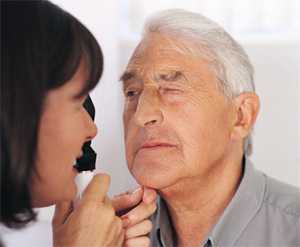
Did You Know: 50% of Blindness can be Prevented?
Blindness is severe vision loss that cannot be corrected by glasses, contact lenses, medicine, or surgery. The major blinding eye diseases among people 40+ years are: cataracts, age-related macular degeneration, diabetic retinopathy, and glaucoma.
Blindness and irreversible vision loss cost $139 billion in 2013, making it one of the costliest health conditions in the United States. Blindness and vision loss can severely affect quality of life, daily activities, attaining education, and social interactions.
Who's at Risk?
More than 4 million Americans aged 40+ years are visually impaired, including 1 million who are legally blind. An additional 61 million people are at risk for severe vision loss, and the number of blind and visually impaired people is expected to double by 2030 unless corrective action is taken.
Can It Be Prevented?
Approximately half of all blindness can be prevented. Many blinding eye diseases do not have symptoms in their earlier stages, so screening and early treatment are critical. People with blindness may benefit from vision rehabilitation and assistive devices to maximize their remaining vision and help them maintain an independent, productive life.
The Bottom Line
- Risks for blinding eye diseases include: diabetes, being African-American aged 40+ years, and being 65+ years.
- The risk of blindness can be reduced through early detection and treatment, so regular eye exams are important.
- Rehabilitation and assistive devices can help people with vision loss maintain an independent, productive life.
Related Links:

National Colorectal Cancer Awareness Month: What You Need to Know
Cancer is a disease in which cells in the body grow out of control. When cancer starts in the colon or rectum, it is called colorectal cancer. Sometimes it is called colon cancer, for short.
Colorectal cancer affects men and women of all racial and ethnic groups, and is most often found in people aged 50 years or older.
Of cancers that affect both men and women, colorectal cancer is the second leading cancer killer in the United States, but it doesn't have to be. Colorectal cancer screening saves lives. Screening can find precancerous polyps—abnormal growths in the colon or rectum—so that they can be removed before turning into cancer. Someone could have polyps or colorectal cancer and not know it. If you have symptoms, they may include—
- Blood in or on your stool (bowel movement).
- Stomach pain, aches, or cramps that don't go away.
- Losing weight and you don't know why.
Screening can find colorectal cancer early, when there is a greater chance that treatment will be most effective and lead to a cure. While screening rates have increased in the U.S., not enough people are getting screened for colorectal cancer. If you are aged 50 or older, get screened now.
Related links:
- Colorectal Cancer Screening Saves Lives brochure [PDF-2.6MB]
- Basic Information on Colon Cancer
- Colorectal Cancer Screening: Basic Fact Sheet [PDF-321KB]
- Screen For Life

National Sleep Awareness Week
While we often consider sleep to be a “passive” activity, sufficient sleep is increasingly being recognized as an essential aspect of health promotion and chronic disease prevention in the public health community.
Insufficient sleep is associated with a number of chronic diseases and conditions—such as diabetes, cardiovascular disease, obesity, and depression—which threaten our nation’s health.
The following is a list of sleep hygiene tips which can be used to improve sleep.
- Go to bed at the same time each night and rise at the same time each morning, including weekends.
- Make sure your bedroom is a quiet, dark, and relaxing environment, which is neither too hot nor too cold.
- Make sure your bed is comfortable and use it only for sleeping and not for other activities, such as reading, watching TV, or listening to music. Remove all TVs, computers, and other "gadgets" from the bedroom.
- Avoid large meals before bedtime.
Related Links

National Youth Violence Prevention Week
Youth violence is a serious yet preventable problem that can have lasting harmful effects on victims and their family, friends, and communities. Youth violence includes harmful behaviors that can start early and continue into young adulthood.
The goal for youth violence prevention is simple—to stop this violence from happening in the first place.
The Problem
- More than 547,000 young people ages 10 to 24 are treated in emergency departments each year for injuries sustained due to violence-related assaults.
- On average, 12 people in this same age group are victims of homicide each day in the United States.
- In a nationwide survey of high school students, 7% reported not going to school at least one day in the 30 days before the survey because of safety concerns.
- In the same survey, 8% reported they had been in a physical fight on school property in the previous 12 months.
Certain factors can make individuals more vulnerable to victimization and perpetration. The following risks increase the likelihood a young person will experience violence or be involved in violence:
- Involvement with drugs, alcohol, or tobacco
- Poor academic performance
- Poor behavioral control
- High emotional distress
- Antisocial beliefs and attitudes
- Poor monitoring and supervision of children
- Association with delinquent peers
- High concentration of poverty
Preventing Youth Violence
Certain factors can also prevent individuals from experiencing or being involved in violence. These protective factors include:
- Highly developed social skills
- Connectedness to family or adults outside the family
- Shared activities with family
- Commitment to school
- Involvement in positive social activities
- Positive school climate
Youth violence prevention continues to advance rapidly. Research and experience in communities show it is possible to stop youth violence before it starts. Many programs and strategies have been found effective at preventing violence and related behaviors among youth.
Everyone has an important role in stopping youth violence before it starts. Examples of youth violence prevention approaches based on best-available evidence include:
Approaches for use in schools, homes, or communities:
- Universal School-based Youth Violence Prevention Programs provide students and educators with information about violence and teach skills to nonviolently resolve disputes.
- Parenting Skill and Family Relationship Approaches provide caregivers with support and teach communication, problem-solving, monitoring, and behavior management skills.
- Policy, Environmental, and Structural Approaches involves changes to community environments that can enhance safety and reduce the risk for violence.
Approaches that focus on those at immediate risk:
- Intensive Family-focused Approaches provide therapeutic services to high-risk, chronic youth offenders and their families.
- Street Outreach and Community Mobilization Approaches connect trained staff with at-risk youth to mediate conflict, make service referrals, and change beliefs about the acceptability of violence.
Approaches that focus on very young children:
- Early Childhood Home Visitation provides information, support, and training about child health, development, and care to families who have infants and young children.
- Early Childhood Education offers high-quality, early education to disadvantaged children to build a strong foundation for future learning and healthy development.
Related links
 National Youth HIV and AIDS Awareness Day — April 10, 2015
National Youth HIV and AIDS Awareness Day — April 10, 2015
HIV/AIDS represents a serious health threat to young people. In the United States, young people aged 13 to 24 accounted for an estimated 26% of all new HIV infections in 2010. Despite the disproportionate number of new HIV infections occurring among youth, the percentage of youth tested for HIV is low compared to other age groups. In fact, only 22% among the 34% of sexually experienced U.S. high school students have ever been tested for HIV.
Youth HIV Awareness
National Youth HIV & AIDS Awareness Day (NYHAAD) was created by Advocates for Youth and other partners to educate the public about the impact of HIV/AIDS on youth and highlight the exceptional work young people are doing across the country to strengthen the fight against the HIV/AIDS epidemic. The day serves as a reminder that it is more important than ever to recommit to the fight against HIV/AIDS in young people.
Preventing Youth HIV
More work needs to be done to ensure that everyone, including young people, knows how to protect themselves against HIV. NYHAAD encourages everyone to:
- Get the facts. Learn basic facts about HIV risks, transmission, testing, and prevention.
- Get talking. Talk with youth about HIV prevention. Talk with parents, doctors, and other trusted adults about HIV and sexual health.
- Get tested for HIV. CDC recommends that everyone between the ages of 13 and 64 get tested for HIV at least once as part of routine health care. Contact your health care provider about testing.
Related links:
- CDC: Sexual Risk Behavior (http://www.cdc.gov/healthyyouth/sexualbehaviors/index.htm)
- CDC: HIV Among Youth (http://www.cdc.gov/hiv/risk/age/youth/index.html)
- CDC parental fact sheets:
- Act Against AIDS Campaign (http://www.cdc.gov/actagainstaids/)
 Benefits of Healthy Eating for Young People
Benefits of Healthy Eating for Young People
- Proper nutrition promotes the optimal growth and development of children.
- Healthy eating helps prevent high cholesterol and high blood pressure and helps reduce the risk of developing chronic diseases such as cardiovascular disease, cancer, and diabetes.
- Healthy eating helps reduce one’s risk for developing obesity, osteoporosis, iron deficiency, and dental caries (cavities).
Consequences of a Poor Diet
- A poor diet can lead to energy imbalance (e.g., eating more calories than one expends through physical activity) and can increase one’s risk for overweight and obesity.
- A poor diet can increase the risk for lung, esophageal, stomach, colorectal, and prostate cancers.
- Individuals who eat fast food one or more times per week are at increased risk for weight gain, overweight, and obesity.
- Drinking sugar-sweetened beverages can result in weight gain, overweight, and obesity.
- Providing access to drinking water gives students a healthy alternative to sugar-sweetened beverages.
- Hunger and food insecurity (i.e., reduced food intake and disrupted eating patterns because a household lacks money and other resources for food) might increase the risk for lower dietary quality and undernutrition. In turn, undernutrition can negatively affect overall health, cognitive development, and school performance.
Related Links

National Congenital CMV Infection Awareness Month
Most infants who are infected with cytomegalovirus (congenital CMV infection) appear healthy at birth. Health problems or disabilities caused by congenital CMV infection typically appear in about 20% of infected children 2 or more years after births.
Signs and Symptoms
Signs of CMV infection that may be present at birth
- Premature birth
- Liver problems
- Lung problems
- Spleen problems
- Small size at birth
- Small head size
- Seizures
Permanent health problems or disabilities caused by congenital CMV infection
- Hearing loss
- Vision loss
- Mental disability
- Small head size
- Lack of coordination
- Seizures
- Death (in rare cases)
Children with congenital CMV infection are more likely to have permanent disabilities if they had symptoms of CMV infection at birth. However, some children with congenital CMV infection who appear healthy at birth can develop hearing or vision loss over time. For that reason, if you know your child was born with CMV infection, it is important to have his or her hearing and vision tested regularly.
Related links:
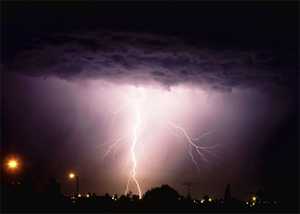 Lightning Safety Tips
Lightning Safety Tips
Do
-
Be aware
Check the weather forecast before you head outside for a game or event. If the forecast calls for thunderstorms, postpone your trip or activity, or make sure safe shelter is nearby. -
Go indoors
Remember the phrase, “When thunder roars, go indoors.” Find a safe, enclosed shelter when you hear thunder. Safe shelters include homes, offices, shopping centers, and hard-top vehicles with the windows rolled up. -
Crouch close to the ground
If you are caught in an open area, crouch down in a ball-like position (feet and knees together) with your head tucked and hands over your ears so that you are down low and have minimal contact with the ground. Do NOT lie down. Lightning causes electric currents along the top of the ground that can be deadly over 100 feet away. Crouching down is the best combination of being low and touching the ground as little as possible. -
Separate
If you are in a group during a thunderstorm, separate from each other. This will reduce the number of injuries if lightning strikes the ground.
Don’t
-
Stay in open vehicles, structures, and spaces
During a thunderstorm, avoid open vehicles such as convertibles, motorcycles, and golf carts. Be sure to avoid open structures such as porches, gazebos, baseball dugouts, and sports arenas. And stay away from open spaces such as golf courses, parks, playgrounds, ponds, lakes, swimming pools, and beaches. -
Stay near tall structures
Do NOT lie on concrete floors during a thunderstorm. Also, avoid leaning on concrete walls. Lightning can travel through any metal wires or bars in concrete walls or flooring.
Related Links

International Group B Strep Awareness Month
Group B Streptococcus (group B strep) is a type of bacteria that causes illness in people of all ages. Also known as GBS or baby strep, group B strep disease in newborns most commonly causes sepsis (infection of the blood), pneumonia (infection in the lungs), and sometimes meningitis (infection of the fluid and lining around the brain).
Among babies, there are 2 main types of group B strep disease.
- Early-onset disease — occurs during the first week of life.
- Late-onset disease — occurs from the first week through three months of life.
For both early and late-onset group B strep disease, and particularly for babies who had meningitis, there may be long-term consequences of the group B strep infection such as deafness and developmental disabilities.
While the rates of serious group B strep infections are much higher among newborns than among any other age group, serious group B strep infections occur in other age groups in both men and women. The most common problems caused by group B strep in adults are bloodstream infections, pneumonia, skin and soft-tissue infections, and bone and joint infections.
Related links:

World Hepatitis Day
Every year on July 28th, World Hepatitis Day aims to increase the awareness and understanding of viral hepatitis as a major global health threat. All types of viral hepatitis can cause inflammation of the liver; however, hepatitis B and C infection can result in a lifelong, chronic infection.
The World Health Organization (WHO) estimates that nearly 400 million people have chronic viral hepatitis worldwide and most of them do not know they are infected.
Hepatitis A is a liver disease caused by the hepatitis A virus that can cause mild to severe illness but does not lead to chronic infection. Globally, there are an estimated 1.4 million cases of hepatitis A every year.
Hepatitis B is a serious liver disease caused by the hepatitis B virus that can cause both acute and chronic disease. The hepatitis B virus is spread through contact with the blood or other body fluids of an infected person.
The hepatitis C virus is a blood borne virus. Unlike Hepatitis A and Hepatitis B, there is no vaccine available to prevent Hepatitis C. The best way to prevent Hepatitis C is by avoiding behaviors that can spread the disease, such as sharing needles or other equipment to prepare and inject cosmetic substances, drugs, or steroids.
Related Links
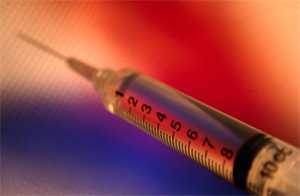
National Immunization Awareness Month
Each year in August, National Immunization Awareness Month (NIAM) provides an opportunity to highlight the value of immunization across the lifespan. Activities focus on encouraging all people to protect their health by being vaccinated against infectious diseases. In 2015, the National Public Health Information Coalition (NPHIC) is coordinating NIAM activities.
The National Immunization Awareness Month Communication Toolkit, developed by NPHIC, in collaboration with CDC, can help you communicate the importance of vaccination throughout the lifespan. Each week of NIAM will focus on a different life stage:
- Preteens and Teens (Aug. 2-8)
- Pregnant Women (Aug. 9-15)
- Adults (Aug. 16-22)
- Infants and Children (Aug. 23-29)
The toolkits include key messages, sample media materials, social media content, and event ideas. Select eye-catching NIAM logos and banners for each weekly theme to place on your websites and social media platforms.
Related Links
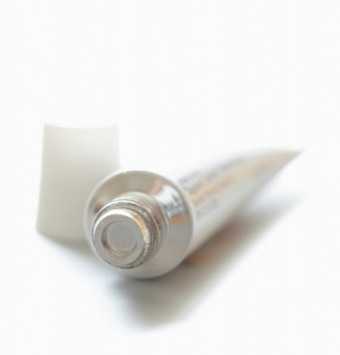
Psoriasis Awareness Month
Psoriasis is a chronic autoimmune skin disease that speeds up the growth cycle of skin cells. Psoriasis causes patches of thick red skin and silvery scales. Patches are typically found on the elbows, knees, scalp, lower back, face, palms, and soles of feet, but can affect other places (fingernails, toenails, and mouth). The most common type of psoriasis is called plaque psoriasis.
Psoriasis often has a typical appearance that a primary care doctor can recognize, but it can be confused with other skin diseases (like eczema), so a dermatologist (skin doctor) is often the best doctor to diagnose it. The treatment of psoriasis usually depends on how much skin is affected, how bad the disease is (e.g., having many or painful skin patches), or the location (especially the face). Treatments range from creams and ointments applied to the affected areas to ultraviolet light therapy to drugs (such as methotrexate). Many people who have psoriasis also have serious health conditions such as diabetes, heart disease, and depression.
Who is at risk for psoriasis?
- Anyone can get psoriasis. It occurs mostly in adults, but children can also get it. Men and women seem to have equal risk.
Can I get psoriasis from someone who has it?
- Psoriasis is not contagious. This means you cannot get psoriasis from contact (e.g., touching skin patches) with someone who has it.
Related Links
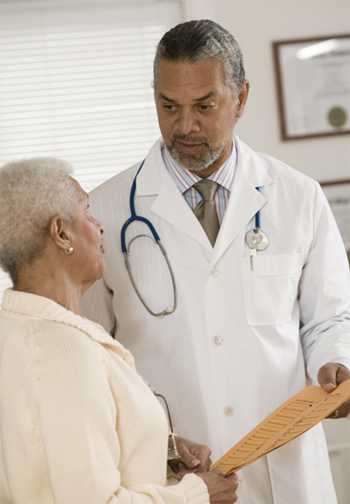
Ovarian Cancer Awareness Month
Ovarian cancer causes more deaths than any other cancer of the female reproductive system. When ovarian cancer is found in its early stages, treatment works best. Ovarian cancer often causes signs and symptoms, so it is important to pay attention to your body and know what is normal for you. Symptoms may be caused by something other than cancer, but the only way to know is to see your doctor, nurse, or other health care professional.
Several factors may increase a woman’s risk for ovarian cancer, including if you—
- Are middle-aged or older.
- Have close family members (such as your mother, sister, aunt, or grandmother) on either your mother’s or your father’s side, who have had ovarian cancer.
- Have a genetic mutation (abnormality) called BRCA1 or BRCA2, or one associated with Lynch syndrome.
- Have had breast, uterine, colorectal (colon), cervical cancer, or melanoma.
- Have an Eastern European (Ashkenazi) Jewish background.
- Have never given birth or have had trouble getting pregnant.
- Have endometriosis (a condition where tissue from the lining of the uterus grows elsewhere in the body).
In addition, some studies suggest that women who take estrogen by itself (without progesterone) for 10 or more years may have an increased risk of ovarian cancer. If you notice any changes in your body that are not normal for you and could be a sign of ovarian cancer, talk to your doctor about them.
Related Links:
- Ovarian Cancer (CDC)
- Ovarian Cancer (National Cancer Institute)
- Detailed Guide: Ovarian Cancer (American Cancer Society)
- Familial Ovarian Cancer Registry
- FORCE: Facing Our Risk of Cancer Empowered
- Foundation for Women’s Cancer
- Get Help: Ovarian Cancer (Cancer Care)
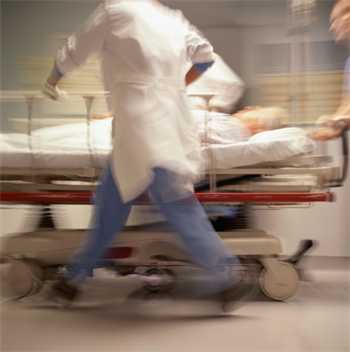
Sepsis Awareness Month
Sepsis is the body’s overwhelming and life-threatening response to infection, which can lead to tissue damage, organ failure, and death. It is difficult to predict, diagnose, and treat. Patients who develop sepsis have an increased risk of complications and death and face higher healthcare costs and longer treatment. CDC is working to increase sepsis awareness among the public, healthcare providers, and healthcare facilities and to improve treatment.
CDC’s National Center for Health Statistics (NCHS) estimates that the number of times people were in the hospital with sepsis or septicemia (another word for sepsis) increased from 621,000 in the year 2000 to 1,141,000 in 2008.
Learn More about Sepsis

Undergrads Undersleep: Sleep health for college students
Going to college is an exciting time in a young person’s life. It’s a time for gaining new knowledge and experiences, both inside and outside the classroom. Here are a few pointers for college students on staying safe and healthy.
Get the sleep you need:
Lack of sleep can be a risk factor for many chronic diseases and conditions, such as diabetes, cardiovascular diseases, obesity, and depression. Students who work or study long hours may not get enough sleep at night. As a result, they may be sleepy and sluggish during the day and have trouble concentrating, participating in class, taking tests, or making decisions.
Good sleep habits include:
- Go to bed at the same time each night and rise at the same time each morning including on the weekends.
- Make sure your bedroom is a quiet, dark, and relaxing environment, which is neither too hot nor too cold.
- Make sure your bed is comfortable and use it only for sleeping and not for other activities, such as reading, watching TV, or listening to music.
- Remove all TVs, computers, and other “gadgets” from the bedroom.
- Limit exposure to light, such as electronic devices, in the evenings.
Other challenges that can affect good sleep health
- Roommates who may have different schedules and preferences for temperature/noise. Even without a roommate, dorms may be noisy at all hours.
- School schedules and wake-up times are often much more irregular than in high school.
- Increased freedom/independence may lead to more late-night socializing, which also makes sleep more difficult.
- Some students may experience increased academic or emotional stress.
- One important sleep hygiene tip is to keep electronics (TVs, computers, cell phones) out of the bedroom. This can be difficult when you’re living in a dorm.
If you have trouble sleeping or are tired after a full night’s sleep:
- Seek evaluation and treatment by a physician, preferably one familiar with assessing and treating sleep disorders
- Before visiting your physician, keep a diary of your sleep habits for about ten days to discuss at the visit
- Include the following in your sleep diary, when you—
- Go to bed.
- Go to sleep.
- Wake up.
- Get out of bed.
- Take naps.
- Exercise.
- Consume alcohol.
- Consume caffeinated beverages.
Related Links:

Hypothermia and How to Treat It
When you are very cold, your body loses heat faster than it can make it. If you are exposed to cold for a long time, you can use up your body’s stored energy and get “hypothermia,” which is a dangerously low body temperature. If your body temperature gets too low, it can affect your brain and make it hard for you to think clearly or move well. This is why hypothermia is dangerous—because you might not know you have it, you don’t do anything about it.
Hypothermia usually happens when it is very cold, but it can also occur at temperatures above freezing if you are chilled from rain, sweat, or being in cold water.
The people who get hypothermia are often (1) elderly people without good food, clothing, or heating; (2) babies sleeping in cold bedrooms; (3) people who stay outdoors for a long time like the homeless, hikers, or hunters; and (4) people who drink alcohol or use illicit drugs.
What to Do
Know the signs of hypothermia:
Adults:
- very low body temperature
- shivering, exhaustion
- confusion, fumbling hands
- memory loss, slurred speech
- drowsiness
Infants:
- very low body temperature
- bright red, cold skin
- very low energy
If someone shows these signs, get medical help right away.
If you can’t get medical help right away, warm the person (or yourself). Follow these steps:
- Get to a warm room or shelter.
- Take off any wet clothing.
- Warm the center of the body—chest, neck, head, and groin–first. Use an electric blanket, if you have one, or use skin-to-skin contact under loose, dry layers of blankets, clothing, towels, or sheets.
- Warm drinks can help increase the body temperature. Do not give drinks containing alcohol. Do not try to give a drink to an unconscious person.
- After the person’s body temperature has gone up, keep the person dry and wrapped in a warm blanket. Wrap the person’s head and neck too.
- Get medical help as soon as you can.
Someone with severe hypothermia may be unconscious and may not seem to have a pulse or to be breathing. Even if the person appears to be dead, provide CPR while you warm him or her and until he or she responds or medical aid arrives.
Related Links
- Page last reviewed: January 16, 2015
- Page last updated: January 16, 2015
- Content source:



 ShareCompartir
ShareCompartir